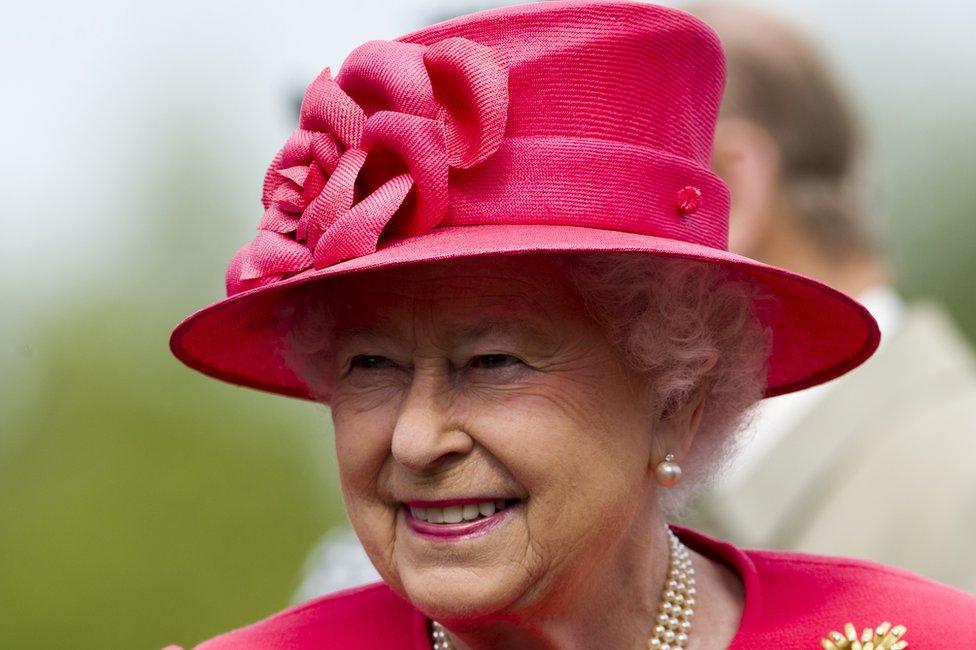The Queen: One doesn't change
- Published

The Queen will say goodbye to Theresa May and hello to Boris Johnson
Although she doesn't get to vote, Her Britannic Majesty gets a say today in the future government of Britain.
Her private secretary will have warned her to expect a couple of visits from senior Conservative MPs: one handing in her notice, the other - one Boris Johnson - hoping that the Queen will invite him to form a government.
She can watch their approach on TV, on which a helicopter will show the aerial view of a limo making its way from Downing Street to Buckingham Palace. (I don't know why either, except that it provides pictures to feed the televisual beast.)
In uncertain times, it's a fairly certain bet that she will ask Mr Johnson to form a government, even though the Conservatives lack a majority.
He will, incidentally, be the fifth Etonian she has asked to become Prime Minister, following Eden, Macmillan, Douglas-Home and Cameron.
So far, so conventionally British. But I raise the issue, and briefly go careering off my usual money-related brief, because the monarch is the bit of the constitution that has so far had little attention in this extraordinary Brexit saga.
The Queen seems only to be mentioned as the part of the story that should not be involved with, or tainted by, the deep political rift over Britain's place in or out of Europe.
And with good reason, er, arguably. But that leaves a significant gap in the machinery, when the rest of it is breaking down.
Keeping the monarchy out of politics
In other parliamentary monarchies in Europe as well as republics, the head of state has the role of appointing prime ministers, and also has the role of dismissing them when they lose the capacity (or votes) to govern.
If they can't get their key measures through parliament, the president does a bit of summoning to see if someone else can do better.
The monarch or president can also be the person, or institution, that forces an election if there is an impasse, even if the governing party would rather avoid one.
So imagine how things might have turned out differently if a more politicised monarchy had told Theresa May to vacate Downing Street in favour of someone else - long before her own party's MPs told her to do so.
Those MPs were motivated by their own party's interests. And likewise, they have been avoiding talk of a general election, at least until Boris Johnson's rise to the top, for fear of annihilation at the polls.
Again, imagine if that call were made by the Queen and not by a governing party riven by divisions and clinging to power only out of fear of what happens if it lets go.
The Queen won't do any of that, of course. Keeping the monarchy out of politics is valued very highly in the British system, and after 67 years as head of state, she knows the system fairly well.
But imagining it might shed some light on a mechanism for change that is missing from the unwritten constitution. It has only become clear with the breakdown of the normal business of British politics.
